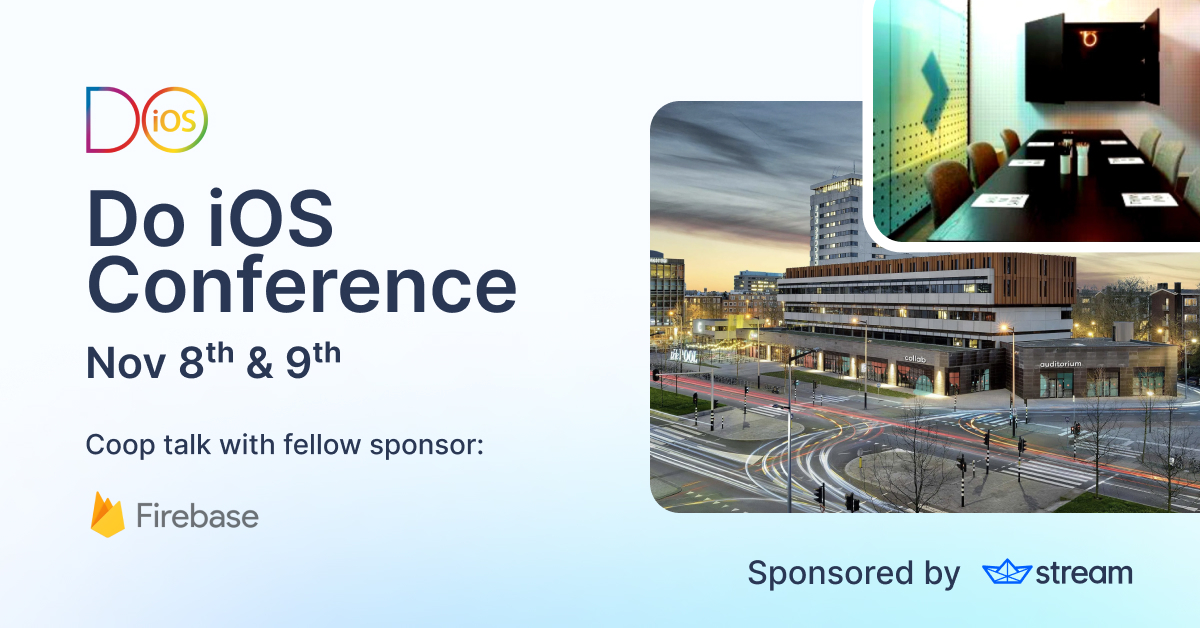
Do iOS is a conference in Amsterdam. It is the 4th edition. Previous editions were organized in 2015, 2016, and 2018. The event itself has quite an interesting history. The best part is I have been involved with each edition.
Publicly a lot of people will likely think it was only me organizing Do iOS. But the truth is, a team of four people did it. Bart was available to bounce ideas off. Jolanda promised to help during the conference itself by operating a camera and assisting with any odd job that would arise. Marco started early by taking care of everything related to video and audio. With Marco, I can trust things will get done. Bart is always critical in a constructive way. And Jolanda always has unexpected ideas and insights, adding a lot of creativity.
My task for Do iOS, and the perspective of this article, is my experience organizing. My task list was simple.
But before we dive into each of the above items. Let us dig into some of the history of Do iOS.
It all started back in 2015. Back then, I was working for Xebia. The consulting company I got started doing iOS development. Back then, I pitched the idea of organizing a conference for my employer. And they agreed. Together with Wendy we got started. It was a lot of fun. It was a lot of Xebia style. But the result was great. The event's revenue was 75% of the costs, without assigning any value to the number of hours spent. Whoops. 😬
Note: Xebia was very important not only to Do iOS, they covered the cost of creating the Stichting CocoaHeadsNL, in English, the CocoaHeadsNL Foundation. The legal entity running mac/iOS developer meetups since 2008. I only got involved in 2013, and converting the rag-tag group into an actual legal entity has proven to be a huge enabler of the success of the Dutch CocoaHeads. A meetup group does not exist for over 14 years for no reason.
In 2016, Do iOS was planned yet again. This time I was not working for Xebia anymore, but I was hired as an external consultant. Again, this was an event done Xebia Style. Just look at the 2016 speaker lineup.
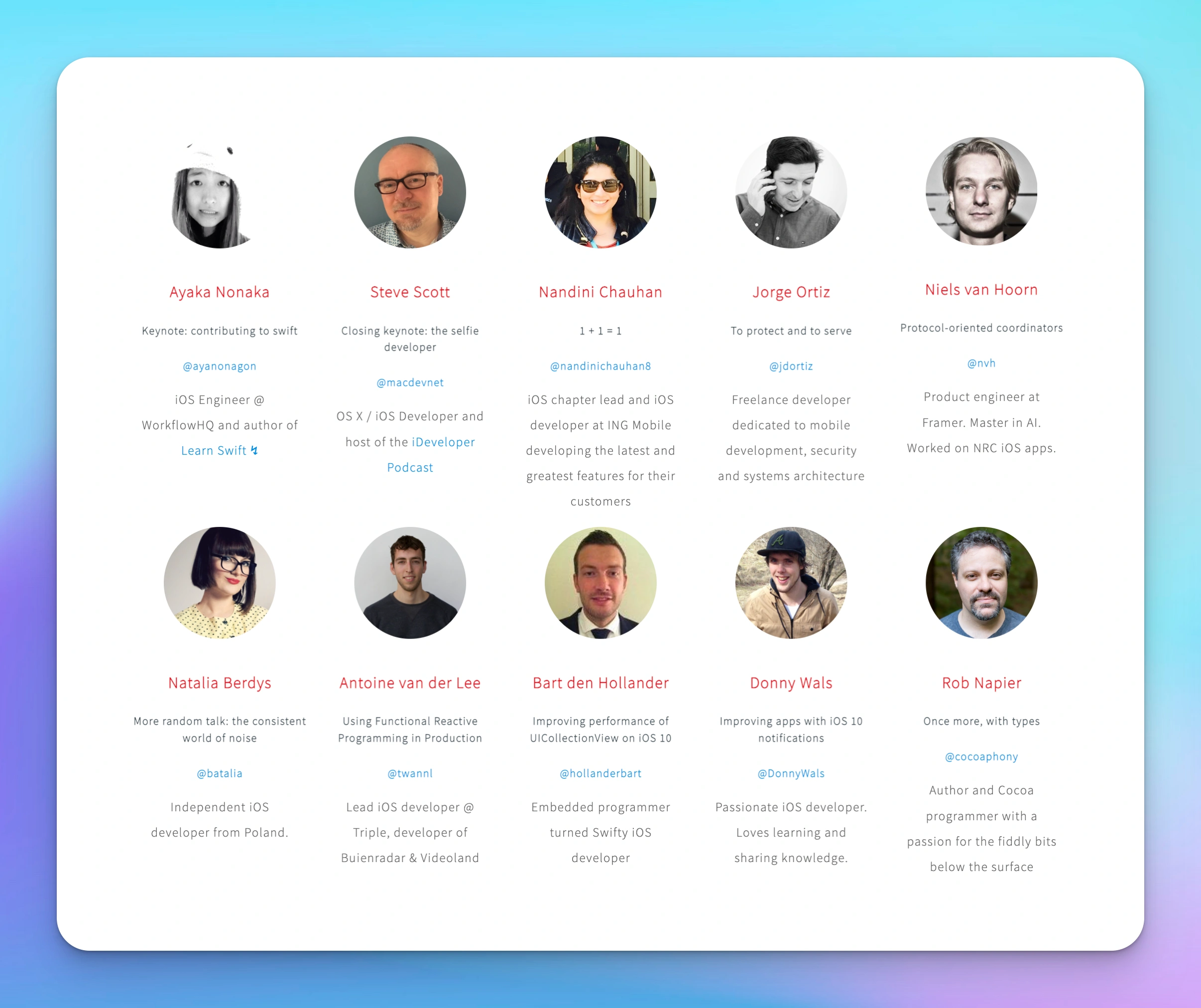
Note how young Antoine and Donny Wals look. Their first conference appearances. Ever.
Anyways, 2016 was successful, but again, lots of money was spent with too little income. But a lot of fun.
Then came two years of no Do iOS. Xebia stopped iOS consulting altogether, and then the day came I outright asked for the transfer of ownership of all things related to Do iOS to CocoaHeadsNL. And Xebia agreed. The domain name, git repositories, email lists, Twitter handle, everything.
Mind blown. No strings attached, just an implicit agreement to "do the right thing" with it.
So in 2018, it was the first time the Dutch CocoaHeads organized Do iOS. Here are all the videos of that 2018.
2018 was also the first time Do iOS turned a profit. This was also the intended goal of the conference. We've been saving up some sponsor money for years with CocoaHeadsNL, and we now felt comfortable running a bigger event without collapsing the CocoaHeadsNL in case we had a complete failure.
But, Do iOS 2018 was not a failure... Not at all. It was the first Do iOS conference that resulted in a nett positive result. Not much, but we were left with more money in the CocoaHeadsNL bank account at the end of the conference.
We skipped 2019 because we were all just too busy. At end of 2019, we were talking about Do iOS again and were planning to do one in 2020. But the news coming from China wasn't good. We postponed committing to an event, and the first lockdown hit the Netherlands in February 2020. Our attention was fully focused on keeping something going for our meetup attendees, live streaming was initially a lot of fun due to the new technical challenges it posed. But the excitement of remote meetups gradually slipped. We started our online streams with hundreds of attendees, but a few months in, those numbers went below 50, then 20, and sometimes even below 10. Ultimately, we skipped a monthly meetup here or there to stay sane.
2021 still posed a lot of the aftermath of COVID-19, the sickness flared up once or twice. People were still very much avoiding large gatherings of people, especially indoors.
We didn't consider doing Do iOS in 2021 for a single moment.
The first conferences in over 2 years were carefully happening again. I went to a few, and they felt great. So the desire to organize a conference was back. We still had loads of concerns, we started talking about it internally at CocoaHeadsNL on and off. Summer came, and more conferences were attended.
So on August 24th, I thought: "Damn the torpedoes! Four Bells!"
And so Do iOS 2022 began.
Do iOS has always been in early November. The date was set 75 days into the future. The clock was running.
When organizing a conference, there are a few things you got to make sure you have or get in the process of organizing. A location, content, catering, attendees and money to pay for all of it. If you miss any of these five, you can not execute an event successfully. On the money side of things, I had a huge benefit. CocoaHeadsNL is an organization running for many years. They are not rich by any means, but they have enough money in the bank to pay for a small conference out of pocket. Not everyone has this luxury. And even in our case, we had to secure a reasonable upfront amount.
Sponsors are the number one way to get some starting capital for an event. And the same applies to Do iOS. Fortunately, my employer, Stream, was willing early on in 2022 to sign up as a sponsor for CocoaHeadsNL under the condition that when a larger event was organized in 2022, sponsorship of this event was part of the deal. So Do iOS already had a sponsor before we decided to even consider organizing a 2022 edition.
We needed more, so I started reaching out to my network, and soon, a huge brand agreed to sponsor: Google Firebase. Signing a big brand company is great, but it has some caveats. From experience, I know the bigger the company, the bigger the pile of paperwork they ask you to complete before they can even enter your name into their procurement system. The people at Google were very helpful, and you know you pass a point of no return at some point. You can now work under the assumption they will complete the transaction. It will still take a few weeks after that before you receive the sponsorship amount in a bank account.
I think red tape is the primary reason events often have a mix of big and small companies. The smaller companies can complete the sponsorship transaction much quicker and thus allow you to start financially bootstrapping things sooner.
But all in all, we signed two Sponsors and now had our financial risks covered. Because that's why you want to sign sponsors, they provide financial coverage in case things don't perform as you'd hoped.
The venue was a no-brainer. In 2020, I was putting together a workshop with Jon Reid. I was planning on doing the workshop at The Student Hotel Amsterdam City. They since renamed themselves to The Social Hub Hotel Amsterdam City. Covid was coming to the Netherlands, and I had to put in a late cancellation of the venue and the catering. And they handled the costs of the cancelation in such a graceful manner, I just had to give them the first opportunity to host an event I am involved with.
On top of that, the 2018 edition of Do iOS was also in the same venue. Considering the time constraints, prior experience with them and the limited time we had (remember those 75 days) we went with what we knew would work for us.
When selecting a venue, there are a few things to keep an eye on. What's the fixed rate for the space you are planning to use, and what costs does each attendee add to your spend, don't forget to ask if their quote includes everything and make sure it is in writing so you don't get hit with additional charges down the line.
The Student Hotel runs a very clean and simple payment structure. You rent a room at an agreed rate, you pay for catering per person. Staffing is included in their prices.
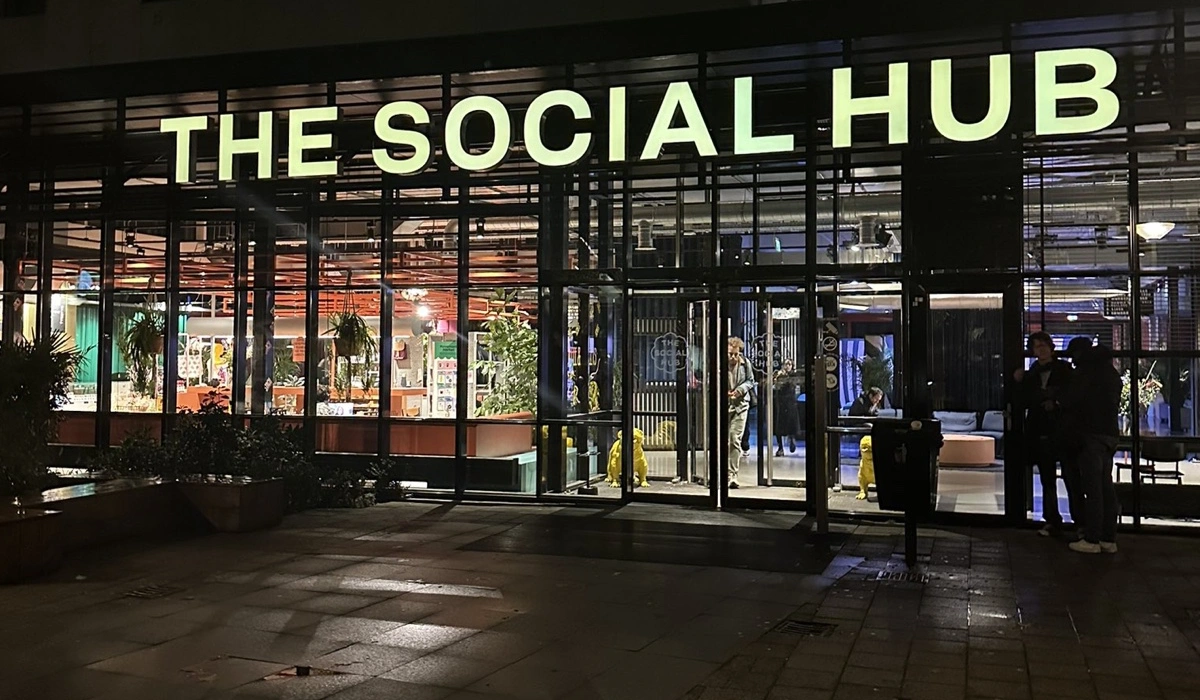 Look for a space you think you might like, check with your network if people have prior experience with them. Go to the venue and have a look around. Once you have found a candidate venue, ring them up and request an in-person meeting with a tour of the facilities that might apply to your event.
Look for a space you think you might like, check with your network if people have prior experience with them. Go to the venue and have a look around. Once you have found a candidate venue, ring them up and request an in-person meeting with a tour of the facilities that might apply to your event.
Any ticketing platform with a reasonable fee structure will do. Tito, Paydro, etc. I went with Paydro for a few specific reasons. They are based in the Netherlands, they channel ticket purchases through a notary-supervised account, and they offer one huge perk. And this huge perk reduces a lot of my risk as an organizer. If I decide to cancel the entire event, I can refund all tickets without any costs incurred on me by Paydro. This has been huge over the years as it allowed me to sell tickets before I knew an event would be executed.
The challenge with selling tickets is that people tend to book late. Like well into the last four weeks late. That's why conferences tend to do an early bird sale. I don't believe in them. You are only cutting your ticketing income. Yes, you will create a forced surge in ticket sales right before the moment the early bird deal expires.
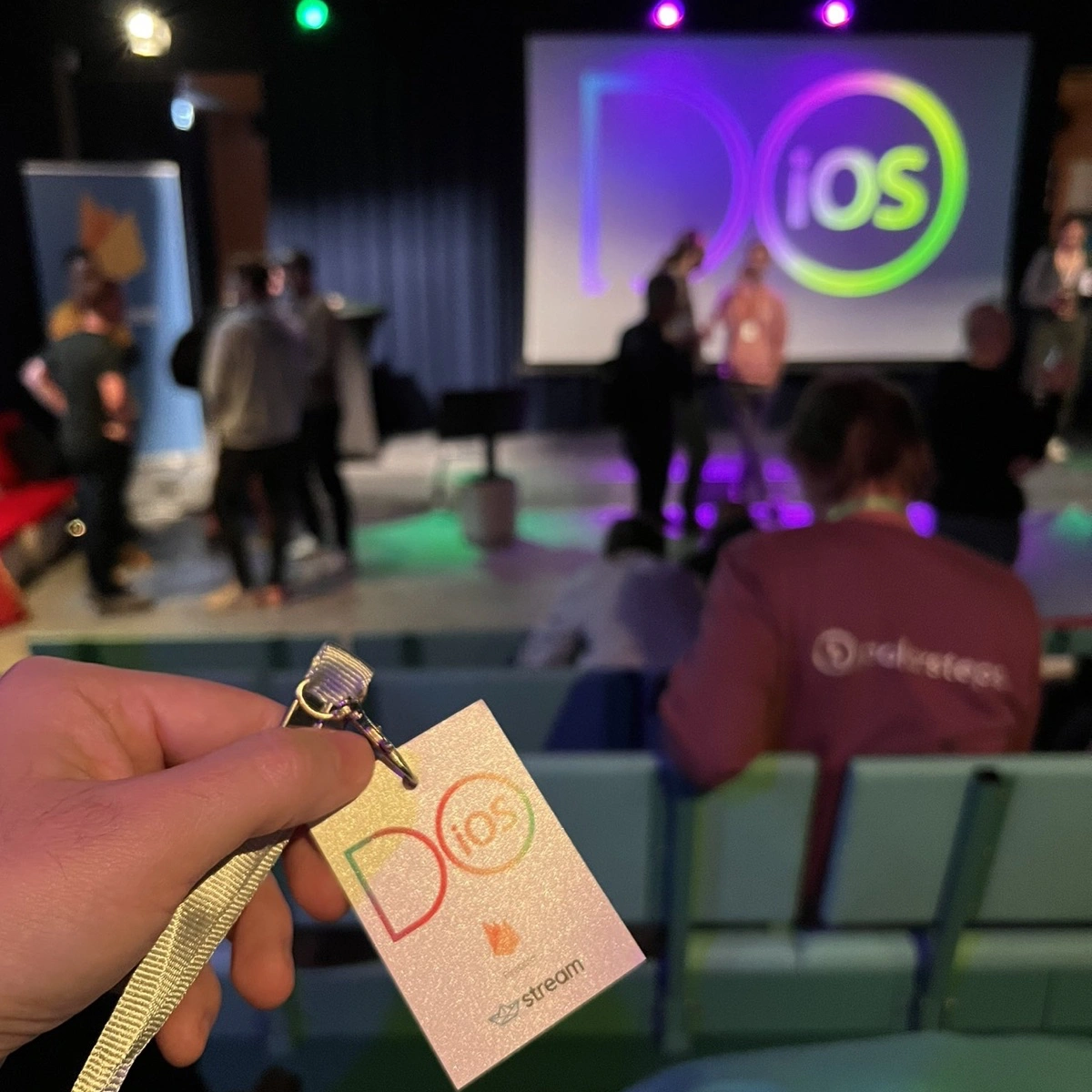 But I'd much rather spend my time exciting people to share and maybe even join the conference. Networking and online advocating for your event are important.
But I'd much rather spend my time exciting people to share and maybe even join the conference. Networking and online advocating for your event are important.
Getting speakers is always the hardest part. How to attract and put together a mix of speakers with diverse and different backgrounds and experience levels? How to take the speakers you can get and put them in such an order that the conference has somewhat of a story arc.
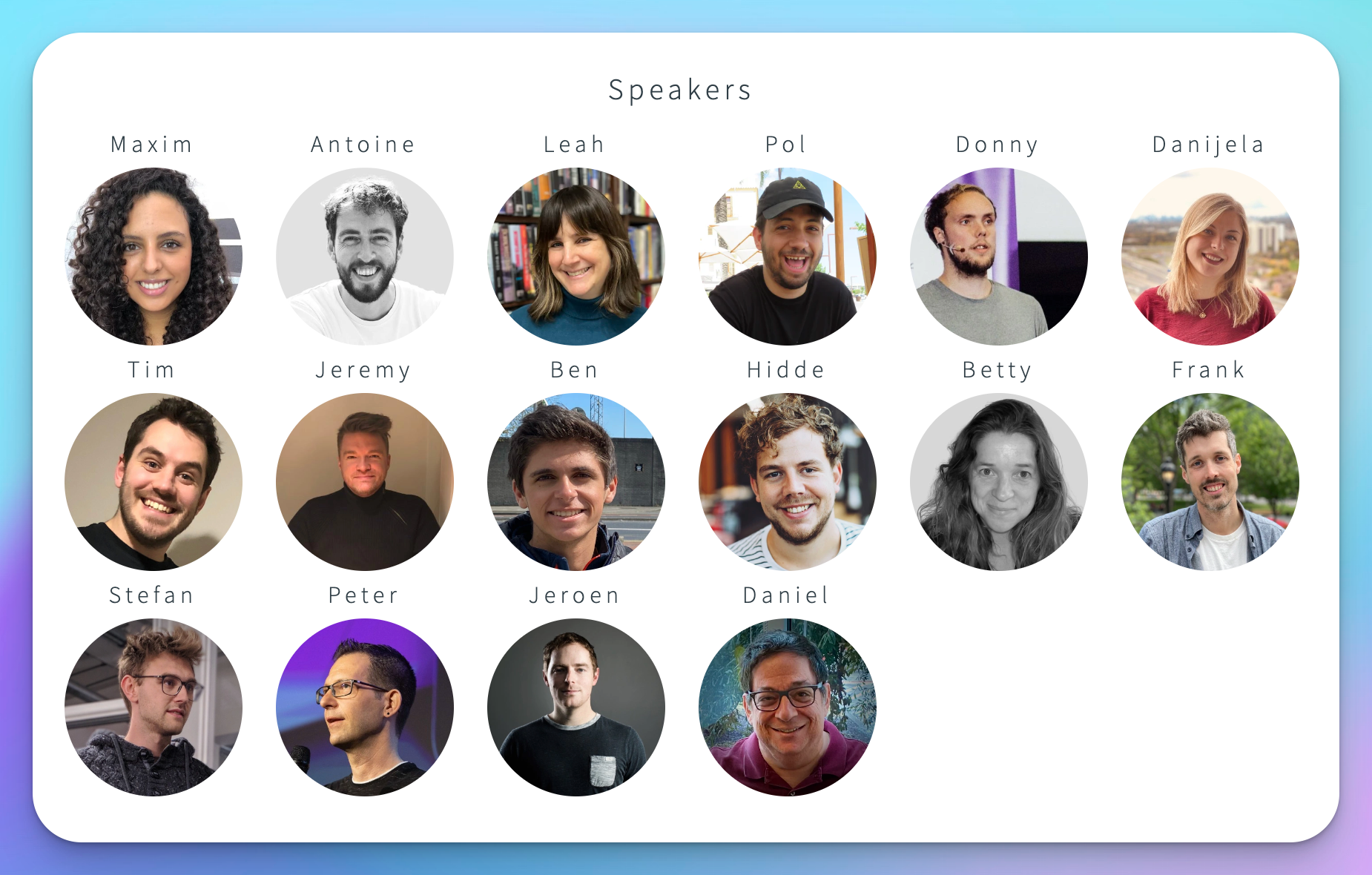
Getting the speakers has been a combination of sourcing my network and an open CFP. A call for proposals is a way of broadcasting to the world that you want people to submit their proposals for a conference talk. You then get to review these proposals and pick the ones on merits you feel match best with the goal and purpose of the conference.
For Do iOS I sourced about 60% of the speakers from my network through direct invitation. The rest were sourced from the call for proposals. There were some really solid submissions received, and we just had to pick the best matches for the remaining gaps in our conference schedule.
Besides the venue and catering, the speakers are probably the most time-consuming aspect of any conference day you are a part of.
What speakers like to know:
Conference day. This is why we put all the hard work and effort into organising. The day when you hope to see many people pass through the door. And running a conference is often in the details. I like to welcome each attendee myself with just a few words during registration. It is a small gesture, but it makes the barrier to come up to me during the event much smaller. By the end of the event, all attendees should know me by my first name. (Knowing theirs is impossible, but I do try.)
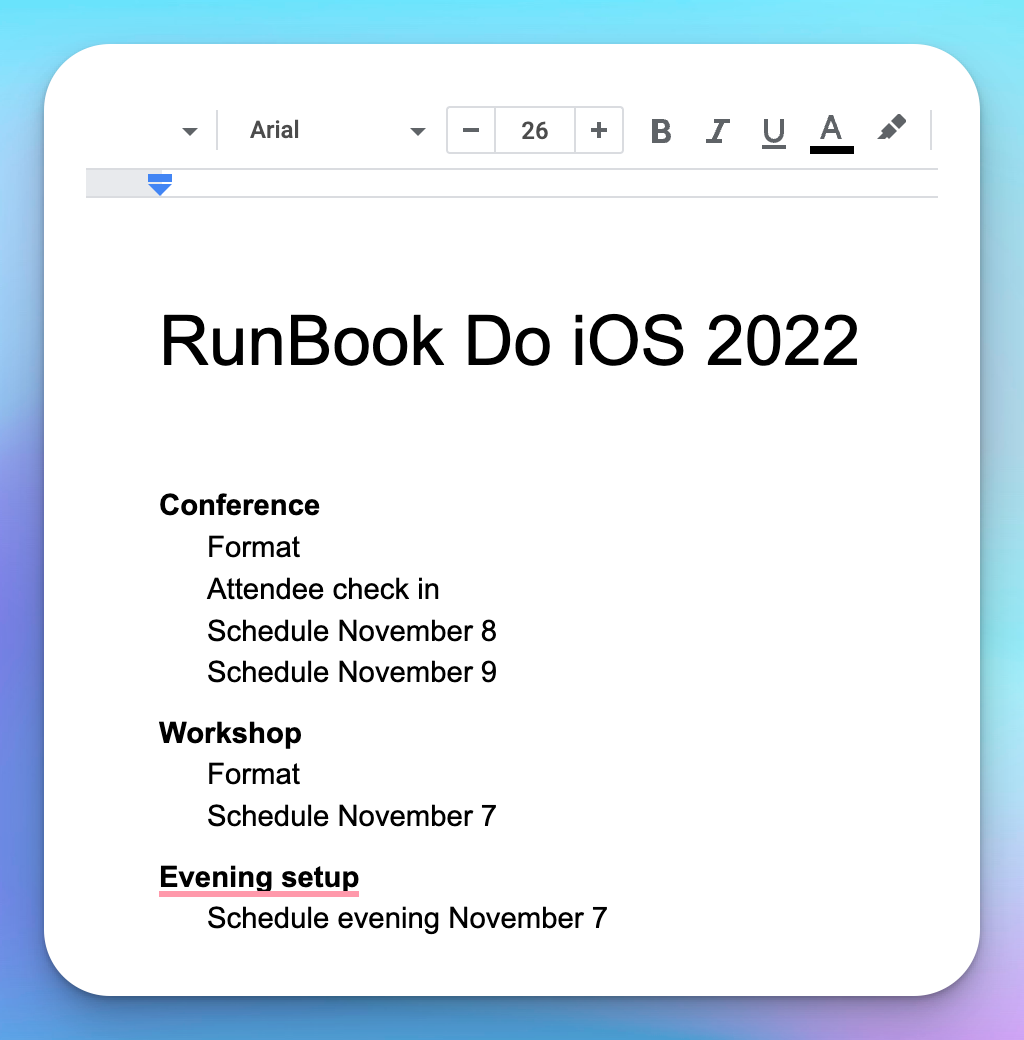
During the event, we have one important asset. The run book, a document slowly created in the lead-up to the event over the timespan of many weeks. And based on run books of previous events. The run book contains all the important aspects of the event. I can send the run book to the venue staff, and they should not need any input to know when and where all catering should be served. The same goes for each team member, if something happens and it is not in the run book, it is something we add next time or something truly exceptional.
Looking back on four editions of Do iOS, it is different each time we run it. Partially based on what we learned along the way and partially because we just wanted to do things a bit differently. The focus of each Do iOS has always been the attendees and allowing them to interact and learn.
Or as the Do iOS website states: To celebrate iOS development in all its aspects.